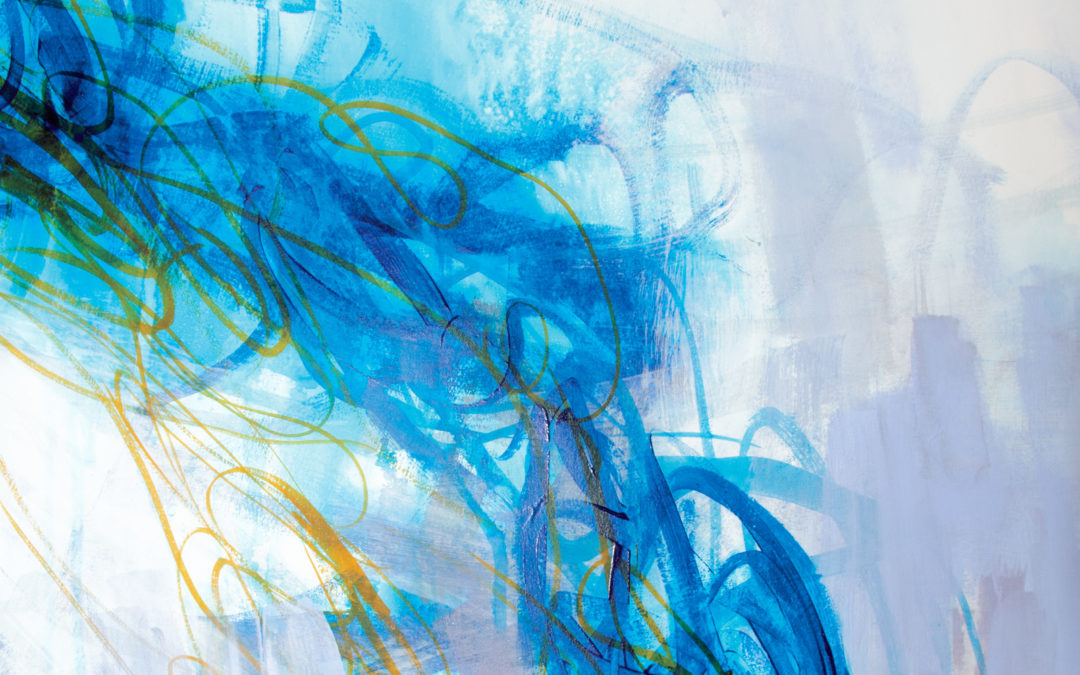by Elizabeth Hunter—
Like a speed trap for an unwary traveler, sorrow catches me when I least expect it: while driving down a familiar road, singing a favorite hymn in church or sharing a simple childhood memory with my kids. It can lurk just around the bend, in the next stanza or in the realization that things can never be what they once were.
Grief can be difficult, something Sonia Solomonson (p. 6), Bev Stratton (p. 10), Susie Gamelin (p. 33) and others acknowledge in the thoughtful articles that make this entire issue a valuable grief resource for you and anyone you may wish to share Gather with. “The ache of grief”—the title of session two (see p. 20) of the fall Bible study—can persist long after the initial loss. I’ve heard some people describe “phantom pain” after losing a limb. Even after the wound has healed, there is an empty space that once held what was precious to you. And sometimes, it still hurts.
That’s what I was told two decades ago, on a reporting assignment in Sierra Leone, West Africa. The country’s long-running civil war could be traced back to greed, corruption, economic inequality and the struggle to control a wealth of natural resources, including diamonds. The conflict killed 50,000 to 300,000 and displaced 2.5 million people. Fighters included children who were forcibly drafted and drugged. They were encouraged to use mass murder, trafficking and amputation as terror tactics. For all of the survivors—the innocent civilians and those who committed the atrocities—the trauma and grief were overwhelming, on a scale I could barely comprehend.
Ordinary simple acts—such as glancing at the chair where your loved one once sat or walking past the shell of what used to be your home—caused these strong survivors to bend and weep in sorrow. As Sonia Solomonson writes (p. 6), “[You] don’t get over grief. You get through it.”
Yet Lutheran leaders (supported by gifts from the ELCA and other global church partners) were present, working with social workers to help survivors heal. Mohammed, a student whose hand was amputated by soldiers to keep him from teaching or writing about peace, found healing in speaking before the United Nations and learning to write with his left hand. Doris had lost her home and her life savings, but she still had her faith and her Lutheran congregation. Mariatu, a young teen and double amputee trafficked by soldiers, was weary but hopeful; she’d found a spiritual home for herself and her infant daughter in a Lutheran congregation.
No matter where we come from and what we’ve lived through, we, as Liv Larson Andrews says (p. 18), “long for a community to share—and sing—our grief with us.” In that fellowship, we can hold each other—in person and in prayer. We can learn what to say and what not to say to the grieving (p. 32). We can let the book of Psalms voice our own tears, rage, lament, thanks and praise. And as poet Jill Alexander Essbaum says (p. 38), we can both “rejoice at the empty tomb” and “weep at the foot of the cross.”
Elizabeth Hunter is editor of Gather.
This article is appeared in the October 2019 issue of Gather magazine. To read more like it, subscribe to Gather.


